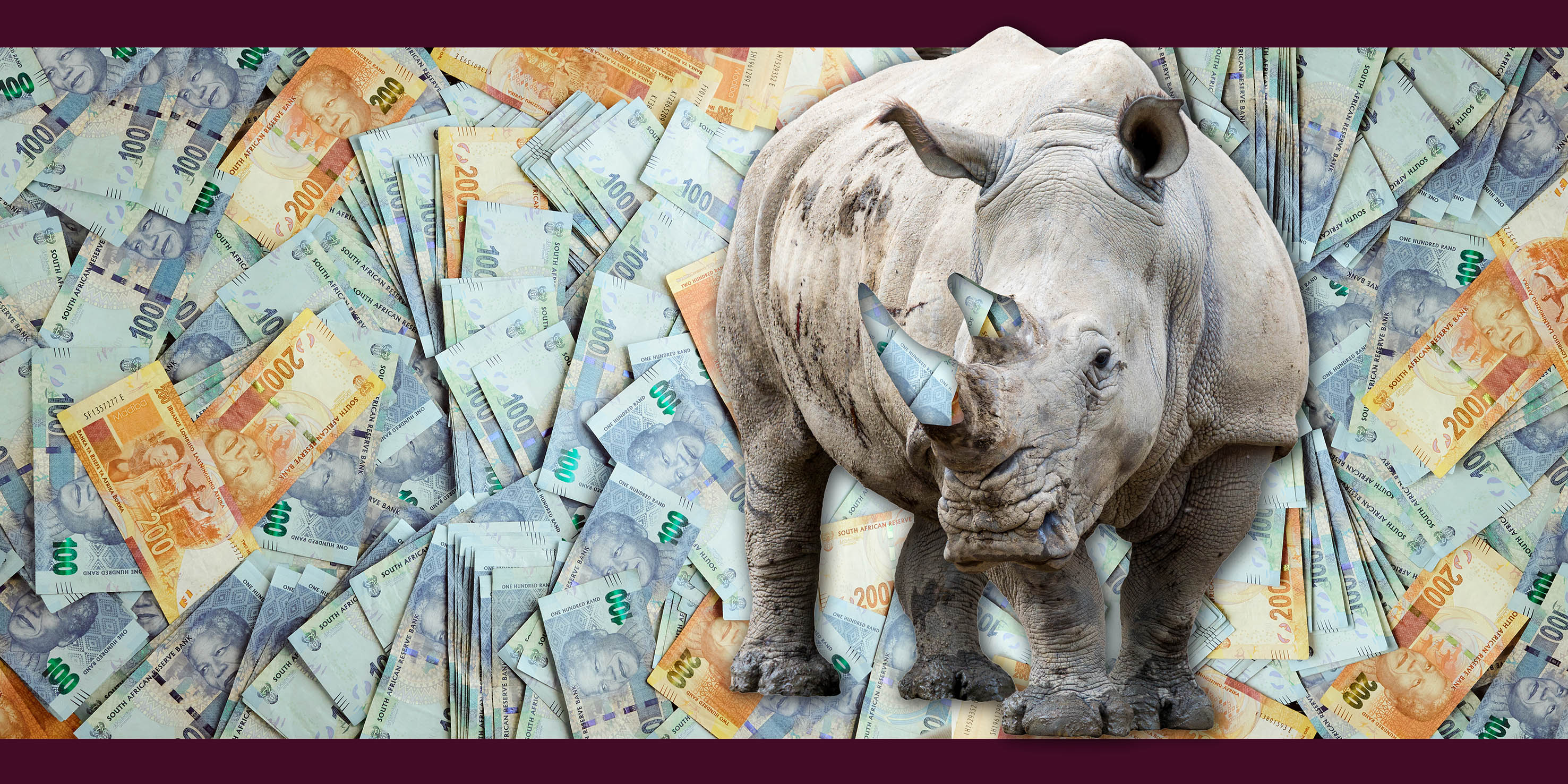The conservation-focused NGO African Parks bought megafauna tycoon John Hume’s rhino breeding project for an “undisclosed sum” in 2023, with the noble aim of rewilding the animals over the next decade.
But NGOs, which rely on donor funding, need to be transparent about their income and expenditure, so the sum has in fact been disclosed, more or less – and it shows that Hume had a blazing fire sale for the animals.
A perusal of African Parks’ financial statements in its 2023 annual report makes it clear that it paid less than $13-million for Hume’s 2,000 white rhinos, a few other critters and the more than 8,000-hectare property in North West with all its buildings and infrastructure.
The infrastructure includes state-of-the-art security measures: a helicopter for rapid response, a multiscreen operations room monitoring every square inch of the property, electric fencing, motion-detecting radars and thermal cameras.
The story in numbers
In African Parks’ 2023 income statement, it has a column that did not appear in its 2022 statement: “Projects: Rhino Rewild/Aouk.”
Aouk, according to African Parks’ website, is an EU-funded project “aimed at setting up an early warning system against transboundary poaching and developing a conservation strategy for this landscape connecting the Greater Zakouma Ecosystem (GZE) to National Parks in North-Eastern Central African Republic”.
“Rhino Rewild” is clearly the purchase of Hume’s breeding project and ranch. The income received for it and Aouk amounted to just more than $15.6-million, and about the same amount was spent on them.
Of this, operating expenditure came to almost $2.8-million, but African Parks did not assume full ownership of Hume’s ranch and animals until December 2023, so presumably most of that went to Aouk.
Capital expenditure, which would include buying stuff, amounted to almost $12.9-million in 2023 under this column in the income statement. So it is safe to say that African Parks paid no more than that sum for Hume’s 2,000 white rhinos and all that went with them. It was obvious at the time that the transaction must have been at least R100-million because it required approval from the Competition Commission.
To the rescue
In late April 2023, Hume put the “Platinum Rhino Project” up for sale via an online six-day auction with a minimum bid of $10-million. But no one rose to the bait.
Hume, an octogenarian, had for years been saying that his rhinos were consuming his once vast fortune with no prospect of them earning their keep because of the global ban on trade in rhino horn.
His rhinos were regularly dehorned and he told this journalist in 2021 that he had amassed about nine tonnes of horn, which would probably fetch hundreds of millions of dollars from Asian buyers.
Read more: ‘Great day’ for conservation as rhinos reach safe haven in Greater Kruger as part of rewilding project
So he was in a bind and the fate of the largest herd of white rhinos in private hands, which represented about 8% of the global population of all rhino species combined, was hanging in the balance until African Parks, with the help of anonymous donors, stepped up to the plate.
If $12.9-million was paid for the 2,000 rhinos, it would be $640 per animal, or just more than R12,000. But because the purchase included the property, infrastructure and a few other animals such as buffalo, the rhinos actually fetched far less.
Rhino prices have fallen dramatically in recent years in the face of the poaching crisis and soaring security costs. In 2017, the average price for adult rhinos at the annual Ezemvelo KZN Wildlife game auction was R361,000. According to industry sources, prices now range from R60,000 to R120,000 for adults – although for hunting, bulls can command much higher prices.
Even in this depressed market, Hume’s rhinos were cheap. By accumulating so many, it seems that he, in effect, deflated the value of his animals due to the costs involved.
A valuable legacy
Hume, a wealthy property developer turned rhino breeder, said he had spent more than $150-million over the years on his project, meaning his investment was ultimately a mammoth loss.
But the conservation dividends are potentially huge, and that will be Hume’s legacy. African Parks has already started the process of transferring the rhinos to other reserves in South Africa.
Read more: ‘Benefits so clearly outweigh the risks’: 120 rhino successfully translocated into Greater Kruger system
Three translocations were undertaken in 2024: 40 were moved to a conservancy in KwaZulu-Natal, 120 to member reserves of the Greater Kruger Environmental Protection Foundation in Mpumalanga and Limpopo, and an undisclosed number to Dinokeng Game Reserve in Gauteng.
The purchase price is almost certainly the tip of the expenditure iceberg and the NGO will need donors to keep opening their wallets to maintain the herd in a secure setting while gradually translocating the animals across South Africa and the wider continent.
This journalist has previously estimated that, over a decade, the costs will amount to a minimum of R1-billion. Hume’s rhinos may have gone for a song, but a costly rewilding dance lies ahead for African Parks. DM
This story first appeared in our weekly Daily Maverick 168 newspaper, which is available countrywide for R35.






